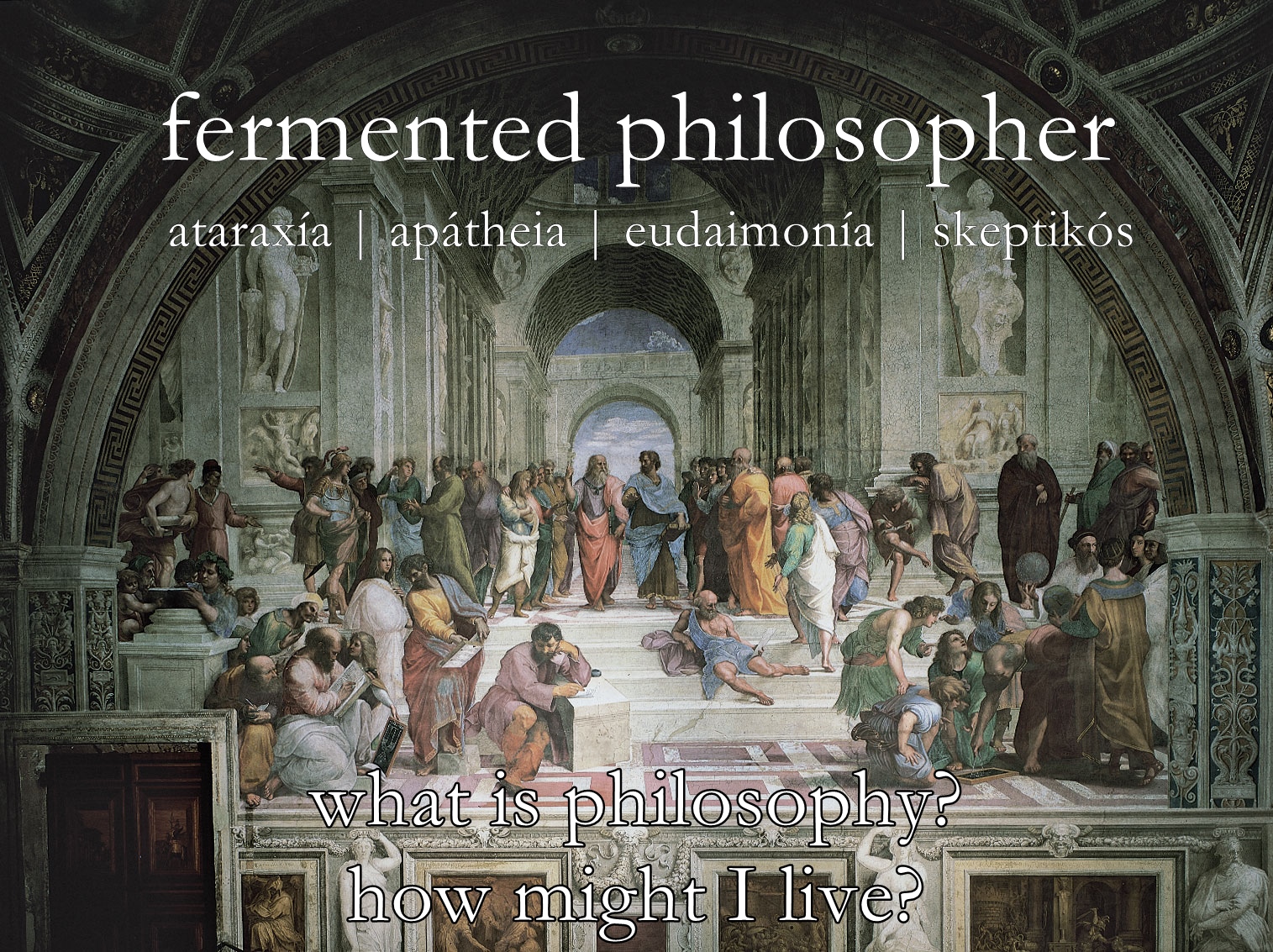
Philosophy 101: How might I live?
Part 7: How to Think Philosophical: Systematic Philosophy and the Significance of Philosophizing
Introduction
Introduction
We all have philosophical thoughts and questions; however, not everyone has the tools or ability to delve deep enough so that it qualifies as systematic philosophy. But this presupposes that this manner of philosophizing has significance for the layperson. Let me explain and help you to utilize this manner of thinking in your everyday life, and more specifically, help you to systematically analyse and philosophize around the question: How might I live?.
Two Ways to Systematically Philosophize
There are, inter alia, two ways in which one might begin to systematically philosophize:
(i) There have been only a handful of philosophers who have systematically developed an all-encompassing system of philosophy about the world. These might include Aristotle, Heidegger, or Hegel. But for the purpose of this course, these philosophical systems are too vast to cover adequately as of now. We still need to work on our philosophical vocabulary to understand these philosophers.
(ii) A second manner in which to systematically philosophize is to choose a particular problem or topic and to focus on said problem or topic. Furthermore, when we focus on singular problems or areas, we can categorize them into different clusters, such as ethics or epistemology. (But more on this next week.)
Simply put, we can either systematically build an all-encompassing system which explains everything in the world out there, or we might simply focus on a single problem in, say, ethics which to systematically philosophize and reflect on.
The Purpose and Significance of Philosophizing
We will not deal with the first kind of systematic philosophy here because we only deal with a specific question (in ethics): “How might I live?”. Hence, we deal only with the latter kind – systematic philosophizing about a specific problem.
Again, we can go about this in two different manners:
(i) We can read what others have said about our problem and question – or one that closely relates our problem. This, in turn, will help us reflect on our problem.
(ii) Or, we can go about it by using the previously discussed methods and techniques to either critically or creatively reflect on our problem without the help of other philosophers.
There are dangers to both. In only relying on other philosophers we become mere mouth pieces to what those philosophers have said, and we uncritically adopt and accept what they said without engaging in their work. We thus, in a sense, stop philosophizing when we do this. And by not looking at what others have said, we might merely repeat what they have said; reinventing the wheel so to speak.
We thus need to use both these in order to adequately philosophize. I will now try and give a concrete example as how one might use this in your life.
Say we ask a question and give a preliminary answer to it. This we call the thesis. We can either critically or creatively reflect on this in order to give a reason why our answer is not correct, or we can use another philosopher’s work in order to critique our own answer. This can be a counter answer to our answer; we can call this an anti-thesis. Now most people might stop here, or they might defend their own position or answer. But with our understanding of philosophy we might go further. We can use this thesis and anti-thesis to create a new answer – we can in a sense synthesize this. Hence, our new answer is called the synthesis. Again, some might stop here – we can call the synthesis the new thesis. And thus, we can again look for a new anti-thesis and so on. The image of a spiral comes to mind:

Answering our Question “How might I live?”
Using philosophy in the above-mentioned manner opens a vastness few will ever experience. By not being closed minded we can see that there are endless ways in which we could go about answering the question as how I might live.
I hope that the above-mentioned spiral image shows you why it is important not the get stuck at one of these positions – one can always make a new thesis by synthesising two previous notions. Next week I will discuss different subsections of philosophy to help us answer our question as to how I might live even further.
Thanks for sharing this! we need more content like this especially for philosophy enthusiast like myself :D
Thank you so so so SO much for this! Comments like this make it worth to keep on writing these pieces. Thanks again!
I am currently re-learning philosophy and trying to learn it with my mature brain. I got into philosophy when I was 15 and stopped reading anything philosophical by 18. Now I am in my 20's, with more experience and I want to see if my thoughts synthesis will still the same. So, keep on sharing contents like this cause you already earn an earnest reader.
To be honest, that is why I am writing these Phil 101 essays: I am taking all my old course notes I made in class in 2014-2017 and relearning to see how with my current disposition the work goes down again. I also want to share these notes that took me years to make. I am looking forward to some of the newer essays as they will be more focused on specific philosophers and philosophies! Thanks so much and hope to hear from you again. Keep safe!
sounds very interesting and Looking forward to that !
This post has been selected for curation by @msp-curation by @clayboyn and has been upvoted and will be featured in the weekly philosophy curation post. It will also be considered for the official @minnowsupport curation post and if selected will be resteemed from the main account. Feel free to join us on Discord!